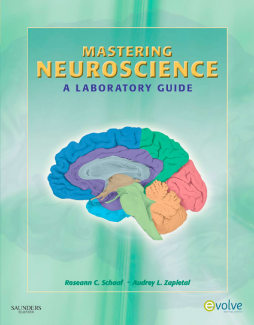
Additional Information
Book Details
Abstract
Enhance your knowledge of neuroscience as it relates to rehabilitation with the first neuroscience laboratory guide designed just for rehabilitation students! This unique manual helps you easily identify the structures of the nervous system and gain a better understanding of the mechanism of the sensory and motor pathways and how they contribute to movement. Fourteen hands-on labs cover the internal and external structures of the CNS, as well as the ventricular system, cranial nerves, the meninges, blood supply, the muscle spindle and GTO, sensory and motor pathways, and the vestibular and visual systems. Numerous case studies illustrate spinal cord injury, brainstem, cranial nerves, and/or cerebrum dysfunction, helping you improve your clinical reasoning skills.
- Helps you develop your critical thinking skills in a hands-on lab environment. These skills, along with a solid understanding of the nervous system, are the bases for understanding movement, behavior, and occupational performance – all essential for rehabilitation professionals!
- Includes case studies that help you build clinical reasoning skills and bridge the gap between theory and practice.
- Student-focused approach allows you to choose from a list of neurological diagnoses and present the pathology as it would manifest in a typical patient – an effective method to help you retain what you’ve learned.
- A focus on clinical applications clearly demonstrates how a knowledge of neuroscience is important in day-to-day rehabilitation practice.
- Key anatomy exercises are presented with helpful illustrations so that you can better identify anatomical structures.
- Step-by-step directions help you find gross and specific structures of brain anatomy, pathways, and more.
- Can be used to supplement any major neuroscience textbook, enhancing your ability to make quantitative and qualitative observations in clinical practice.
